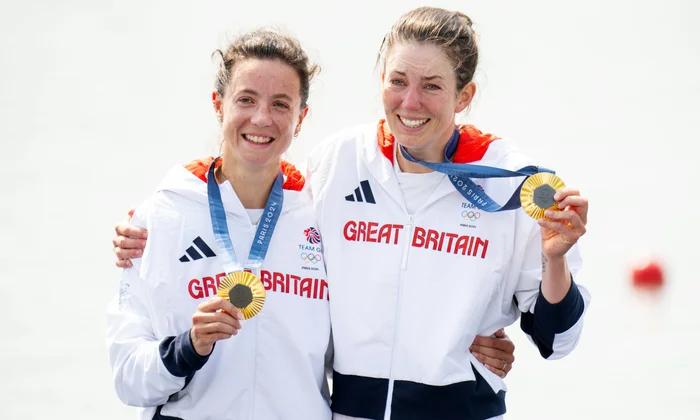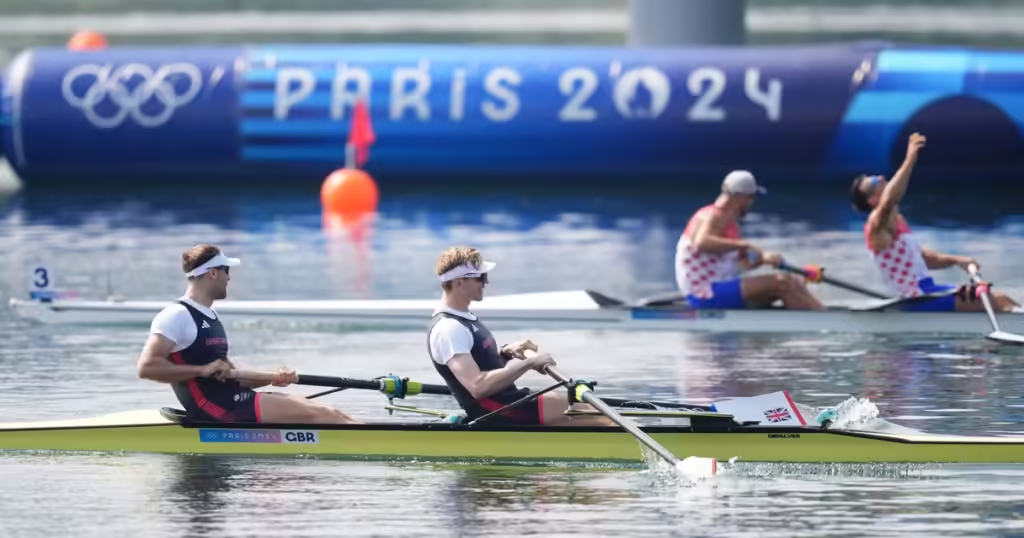
Rowers played a significant role in Team GB’s most successful opening Olympic week. Boats sailed over water, tears spilled from the water, and more British athletes rejoiced on the podium than ever before.
Imogen Grant and Emily Craig led their lightweight doubles final from start to finish, making their performance the highlight of the event. Their story began in Tokyo, when they established a world record in the semi-finals before finishing fourth in the final by 0.01 seconds.
Their deliberate response to keep their heads high and take pride in their Tokyo performance, while others lamented the heartbreak, enabled them to go on, propelled but not defined by the event. Since then, they have gone unbeaten in international competition and will stay champions in perpetuity as the event is removed from Los Angeles 2028 (where beach sprint rowing will be included as part of changes to spice up the sport).
The women’s quadruple sculls of Georgina Brayshaw, Lola Anderson, Hannah Scott, and Lauren Henry created history by winning with a courageous surge on the final stroke. It was Team GB’s first victory in that event, and it marked a departure from Tokyo, where no crews won gold and no women won medals.
When you shoot for the moon, you may end up among the stars. That was the tale of several Team GB crews who raced to win, demonstrated daring, and demonstrated the willingness to take risks necessary to have a chance at the top slot, despite the fact that those risks carry the risk of not always paying off.
The men’s duo of Tom George and Ollie Wynne-Griffith rowed with dedication and courage, doing everything they could to win their finest race of the Olympics. Others were out to make history in that race, with the Sinkovic brothers from Croatia winning their third consecutive Olympic title in a thrilling final sprint.

For the first time, Britain finished on the podium in the women’s coxless fours. After coming fourth in Tokyo, the Paris crew of Rebecca Shorten, Esme Booth, Sam Redgrave, and Helen Glover advanced to second place by a bowball to the Dutch team.
Becky Wilde and Mathilda Hodgkins Byrne won a celebratory bronze medal in the women’s double sculls after securing one of the remaining Olympic qualification berths in June. Their courageous racing against the finest in the world after only a few months together was inspiring to behold. It also ensured that the team’s moms, Hodgkins Byrne and Glover, won medals. That it is achievable in a team sport with centralized, high-volume training is a significant step forward.
Similarly joyful were the eights on the last day, with the ladies earning bronze, a significant improvement from last place in Tokyo, and the men’s eight gaining a stunning gold.
The fans have been discussing how to master those exhilarating closing dashes. Which country’s crews were the best prepared? What is the secret? The majority of training is spent building up massive reservoirs of endurance to sustain power as the oxygen deficit sets in, with sprints added in the final weeks.

Coaches and analysts will study the numbers from the previous week’s thrillers, including stroke rates, stroke lengths, and technique, to gain fresh ideas for the next Olympiad. With rowing limited to 1500m due to the Long Beach location being confirmed for Los Angeles, sprinting in rowing will be taken to the next level in the next few years.
Peaking at the Olympics necessitates each crew developing its own distinct alchemy of power, technique, tempo, tactics, team energy, and confidence. To get it correct for every crew that competed in a final is a great accomplishment for the coaching team, which has remade itself since Tokyo. They have prepared more athletes in more boat classes than ever before to compete at the highest levels under the direction of performance director Louise Kingsley.
The Dutch have been in outstanding form and currently lead the rowing medal table, with Team GB in second place. It has been surprising to see Australia trailing in so many races.
The conditions on the lake were superb, the stands were packed and in terrific voice, and Britons experienced the full range of emotions as they wrote a vivid new chapter in rowing history this week.